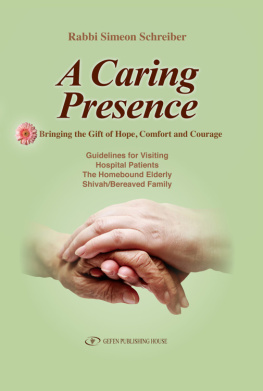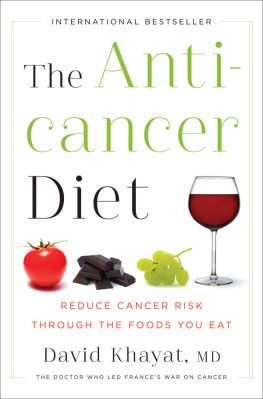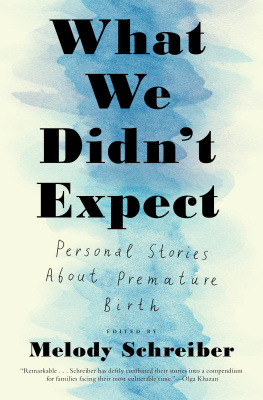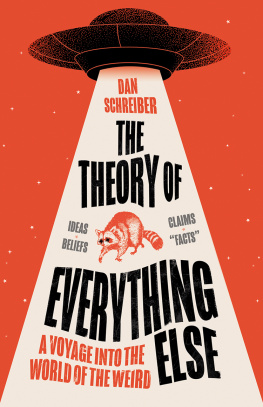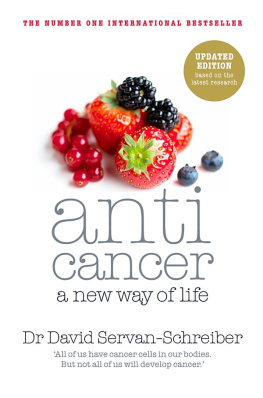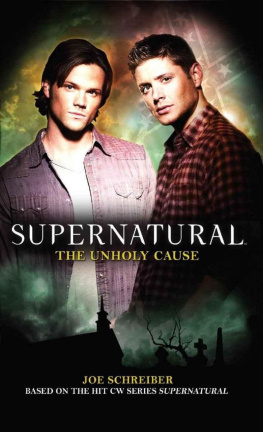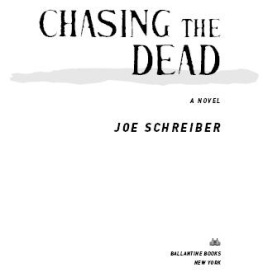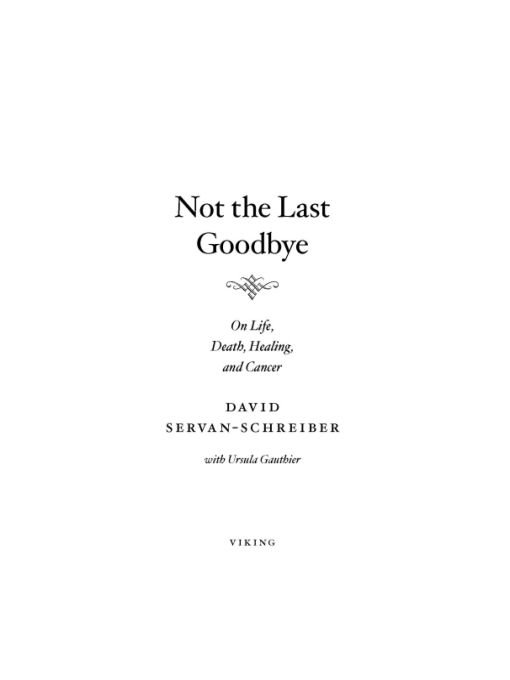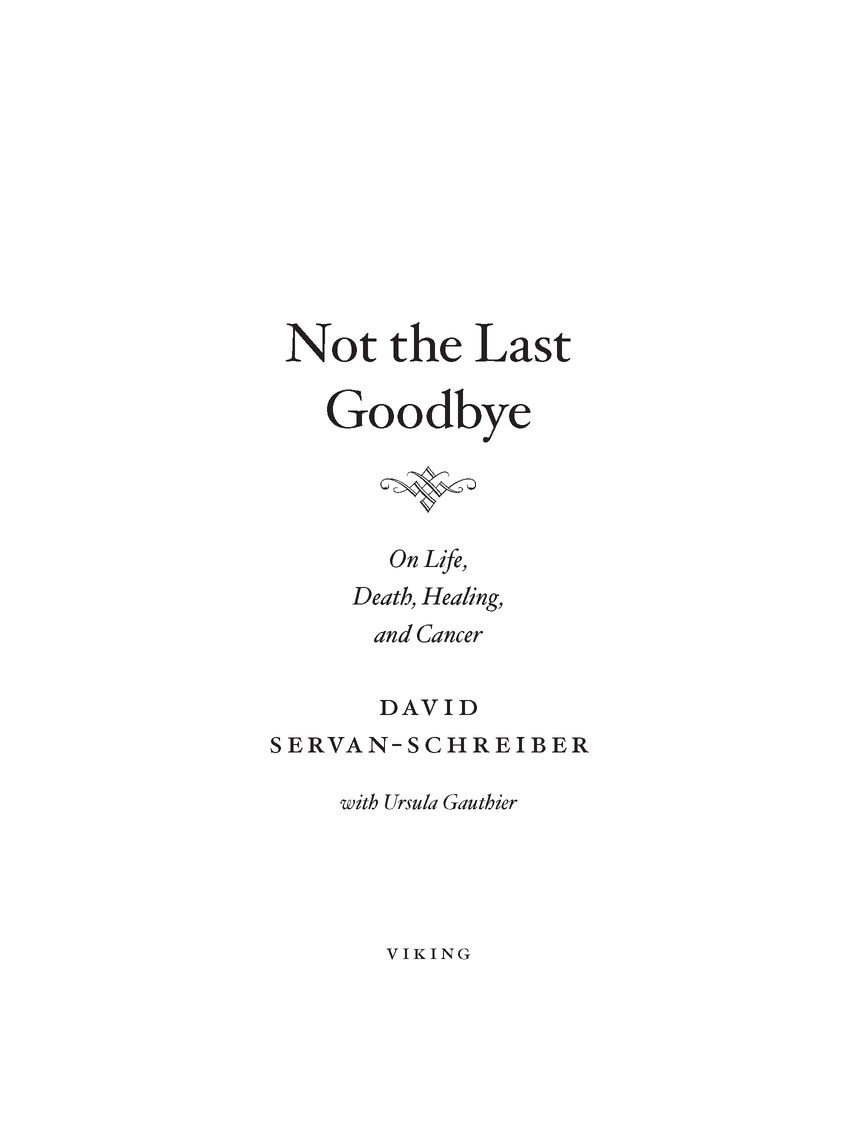Table of Contents
BY THE SAME AUTHOR
Anticancer, A New Way of Life
The Instinct to Heal
This book is dedicated to the cancer specialists
who have so generously given me their time, their expertise,
and their support ever since my cancer was discovered
by sheer accident, nineteen years ago.
It is also dedicated to all my patients who have endured
similar ordeals. They have inspired in me courage,
determination, and inner strength.
Finally, I dedicate this book to my three children:
sixteen-year-old Sacha, two-year-old Charlie, and Anna,
who is six months old. It would grieve me deeply if I were
unable to accompany them in their journey through life.
I hope that I have contributed to their vital life force
and that they will know to nourish it in their hearts,
so that it can spring to their aid whenever they
are faced with lifes challenges.
May 2011
PART I
The Bike Test
That day, when I left the radiology center, I decided to bike home. I have always loved to cycle around Paris and I remember that ride as a special moment. Of course, after the news Id just received, it would have been wiser to take a taxi as the citys uneven cobblestones are dangerous for someone in my condition. But it was precisely because of the news Id been given that I needed some fresh air.
It was June 16, 2010. I had just undergone an MRI and the results were far from encouraging. The images showed a gigantic, vein-filled mass occupying the cavity in my frontal lobe, the site of two previous operations many years earlier. My oncologist was hesitant. He didnt believe the tumor had returned; it was more likely a large edema, a delayed reaction to my previous bouts of radiotherapy. But he wasnt sure. We needed to wait for the opinion of a radiologist who was away and wouldnt be back for several days.
Whether a tumor or edema, either way this thing that was flourishing in my frontal lobe was a direct threat to my life. Given its size and the pressure it was exerting inside my cranium, the slightest variation in internal pressurea bump or joltcould kill me or leave me severely disabled. And Id just returned from a three-day trip to the United States with this ticking bomb inside my head. Each pocket of turbulence could have been the end of me.
Leaving the radiology clinic, I called my wife. Its not looking good, I told her, and I burst into tears. I could hear her sobbing on the other end of the line. I was devastated. With such a weight on my shoulders I couldnt bring myself to cross town cooped up in a car. Instead, I got on my bike, fully aware of the risk I was about to take.
When I tell my friends this story, they look at me in astonishment. The David they know is neither desperate nor easily discouraged. So why would I act so carelessly? Was it a fleeting suicidal impulse? A romantic wish to die on the cobbled streets of Paris? An attempt to escape the months of pain and anxiety that surely lay ahead of me?
Usually I respond with a quip: But I couldnt possibly leave my bike there! I love it too muchits my Tornado. It would be like Zorro abandoning his faithful steed in the wilderness! The truth is, despite what my oncologist was saying, and no matter how much I wanted to believe him, I feared the worst. I had my back to the wall.
I felt a sudden urge to test my courage. To see whether, in this decisive battle, I would be able to mobilize as much strength as Id found for my two previous operations. With twenty more years under my belt and a far larger tumorif thats what it wasin my head, I was going to need every ounce of courage and composure I could muster.
As crazy and reckless as it might seem, the bike test did the trick: Cycling home was a reminder that no matter what the diagnosis, my desire to live was very much intact, as was my determination. I knew I wouldnt give up.
Exhaustion
The first signs that something was wrong ap - peared in May 2010, about six weeks before the MRI. On a few occasions, my legs simply gave way, as if all the strength had been suddenly sucked out of them. I clearly remember standing in my office looking for a book on the shelf one moment and the next I was on my knees on the floor, without the slightest warning.
A few days later, I was being interviewed for French television about Bernard Giraudeau. Bernard was a French actor and film director who had become a friend during his battle with cancer. The journalist informed me that Bernard wasnt doing well. I was distraught at the news and found the interview very difficult. When it was over I stood up to show the journalist out. Just as I was saying goodbye, I collapsed, taking her down with me. The video camera toppled onto me and the coffee table tipped over, covering the floor with tea, cups, and everything else that had been on it. The journalist called out for help, bringing the whole office rushing to where I lay on the floor. It was pretty embarrassing. The journalist couldnt hide her concern. I could just imagine her thinking, Oh my God, another Bernard Giraudeau! I tried to reassure her. Ive just gotten back from the United States, and Im jet-lagged. Ive also been having dizzy spells lately. But dont worry; Im taking care of it.
These symptoms didnt really point to a neurological problem or to a recurrence of my tumor. None of the alarm bells associated with cancer was ringing. My last scan in January had been perfectly clean and the next one was scheduled for July. After considering a number of possible explanations, I concluded that my frailty must be due to anemia. I had been taking a lot of ibuprofen for back pain and thought that perhaps the medication had caused an ulcer in my digestive tract, which by bleeding could have brought on both the anemia and the vertigo. I promised myself I would go for a checkup as soon as possible.
At the time, I was constantly on the move; following the publication of my book Anticancer, I was taking part in conferences and appearing on radio and TV, especially in the United States, where the book was generating widespread interest. So I attributed my fatigue to repeated air travel, jet lag, and the stress of public speaking.
Shortly after the French TV interview where I collapsed, even though I wasnt feeling well, I had to make a quick transatlantic trip to Detroit for an important public television program. When I arrived at the studio, I was as white as a sheet. Youre going to have to work wonders, I told the makeup artist. Dont worry, she replied in a midwestern twang. Well make you look just spiffy! During the following two hours on set, I gave it my best: I smiled, I was upbeat, and I did indeed look spiffy. Afterward, however, I was completely drained and went straight back to my hotel. I had a plane to catch the next morning and wanted to get as much sleep as possible.
Waking up the next morning proved an even taller order. I had a splitting headache and it took all my strength to get out of bed and force down some breakfast. On the way to the airport, I had to pull over at a pharmacy to pick up some Tylenol. Searching through the aisles, I collapsed with a crash into a shelf, knocking its contents to the floor. People in the store helped me to my feet and insisted I go to the hospital. Not wanting to miss my flight to Paris, I got back into the taxi instead.


